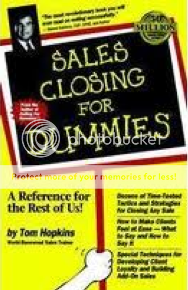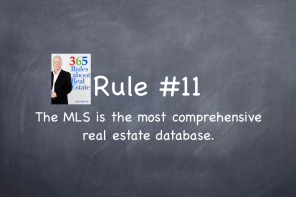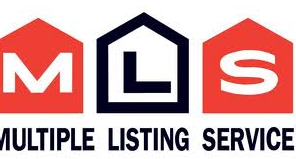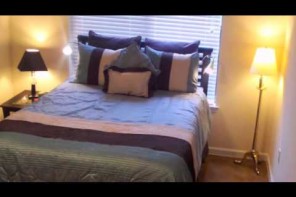 This blog post is about sales closing techniques
This blog post is about sales closing techniques
Most of us have bought things. Cars, houses, appliances and furniture – big ticket items. And many of us enjoy negotiating – be it bargaining for trinkets in Mexico or haggling with your internet/telephone service provider. We shop, we negotiate, we buy (or we walk away). It’s part of the game.
That’s how many of us think. That’s how many shoppers and salespeople still do business. But that’s the old way. It doesn’t have to be that hard. There doesn’t have to be that much pressure exerted and time wasted.
Sales has evolved. It used to be a “dog and pony show”. The plaid-suited, slick car salesman type would get all excited, jump up and down, selling the features and benefits of his product. He would give you the value proposition and then he’d close. He’s say, “they are going fast” and close. He would commend you on your obvious good taste and then close. He’d show you the feature and tell you the benefit and then he’d close. Sales was all about the close.
But that was then.
Anyone who has bought anything in the past twenty years has seen these tricks, these closing techniques many times. Closing techniques are used to cajole and intimidate the buyer. They sometime confuse, sometime embarrass. They are used to influence and exert pressure on the shopper in order to close the deal and make the sale.
If you look at sales, the way it should work, it’s pure economics. Buyers are out to gather information so they can make informed decisions. Salespeople are supposed to help them understand what they are buying by giving them the information they need, answering their questions, bringing buyers to an understanding and comfort level that they will feel confident in their decision.
With that in mind, if a sales representative tries one of these closing techniques on you, know that you are being sold. You are not being treated respectfully. If you’re like me, you’ll recognize the closing techniques below. Watch for them next time you’re buying something. Don’t be fooled.
The impending doom close
In my negotiations with a buyer’s agent the other night he said, “It will be a shame if this whole deal falls apart over some broken window hardware”. This is the impending doom close (the deal falling apart). It implies that if you don’t accept my offer, you’ll never sell. A bad thing is going to happen if you don’t take this deal now.
Language to watch for:
“Interest rates are going to go up.”
“We have other interested buyers for this property.”
The alternate choice close
This sales technique gives the buyer two (or more) choices. It implies that these are the only two options available. We’ve all heard the “is Monday at 2:00pm good or do you prefer Tuesday at 10:00am?” There are always other options. Don’t get fooled into making a chose between the two offered up.
Language to watch for:
“Would you like to pay for the furnace to be inspected and then pay for any repairs or would you prefer just to give us $2500 and let us take on the risk?”
The assumptive close
This sales technique assumes the buyer has already said yes (or is about to say yes) to buying the product. It focuses on the next part of the sale.
Language to watch for:
“What closing date would you like”?
“Will your children be attending Empire Public School or Our Lady of Lourdes Catholic School?”
“Will you be putting in a pool this year?”
Concession close
This close is when the other party gives something up but goes for the close on this concession. In real estate it usually means one side is waving a condition or requirement but is asking for the other side to do the same in order to close the deal.
Language to watch for:
“I’ll remove the home inspection condition if you will accept this price.”
“I’ll give you your price but we’ll have to move the closing date ahead by 30 days.”
Standing room only close
This technique is often used in both condominium sales and new tract home subdivisions. It demonstrates how other people are buying the product and implies that you must not be as clever as them if you don’t see the obvious value and buy now too. It implies scarcity. It creates a sense of urgency.
Language to watch for:
“We sold seven units just yesterday.”
“The best locations are going fast.”
Ownership close
The salesperson acts like they already own it. He gets the buyer to imagine that they are already living in the home.
Language to watch for:
“Where will you be putting the sofa?”
“I can see you preparing dinner here as the kids are watching TV in the family room.”
“This fireplace will be great on those cold winter mornings.”
Balance sheet close (Ben Franklin close)
This is where the salesman draws a line down the centre of a piece of paper and list the reasons to buy on one side and asks you to list the reasons not to buy on the other. It seems logical and transparent but it’s a trick.
Language to watch for:
“Lets write down some reasons to buy.”
Bonus close
The bonus close offers something to sweeten the deal. It is often something that the seller doesn’t especially want (like a hot tub or a freezer) or cannot use in their next home (curtains).
Language to watch for:
“We’ll throw in the gas range.”
“The patio furniture comes with the house.”
The calculator close
The salesman, instead of simply quoting a price will whip out a calculator and “do the math”. Working out the price on the calculator implies that you are getting a special price. The salesman is performing a difficult task. The buyer might feel satisfied that he is getting the best possible deal.
Language to watch for:
“We can do it for this.” (Shows number on calculator)
“This is about as low as they can go.”
Hot button close
There is often one or two most important features the buyer is looking for in his purchase. With homes, it may be a large kitchen with lots of counter space and cupboards. When it is apparent to the salesman what the hot button item is, expect him to mention it repeatedly.
If for example the hot button item is a cherry tree in the back yard, language to watch for might be:
“From the kitchen window, just look at that cherry tree in the back yard.”
“This bedroom is kind of small, but it does overlook the cherry tree in the backyard.”
Compliment close
Flattery will get you everywhere. This sales technique compliments the buyer on their good taste, their eye for detail. It sets them up as experts so they can sell to themselves. It tells them how others will be impressed with them. It also helps the buyer associate themselves with the product. It makes it hard to say no.
Language to watch for:
“You really know your stuff.”
“Your friends will all envy your kitchen.”
Shopping list close
Having had the client provide information about what he is looking for, the shopping list close answers (most of) his needs. By satisfying the needs on the list, the salesman overlooks the items the buyer objects to.
Language to watch for:
“Here’s you list. Lets see if we have everything.”
“You said you wanted a pool, a two car garage and a tree in the front yard, right?”
Yes set close
If you see your salesman nodding his head and asking questions that have you answering “yes” then he is setting you up for a habitual response “yes”. All the little “yeses” will either add up to, or lead to the big “yes”.
Language to watch for:
“You like the living room, don’t you?”
“It’s a wonderful basement rec room, isn’t it?”
“Can you imagine yourself living in this home for the next ten years?”
There are lots of other sales close techniques, some are subtle, some we recognize instantly, some we don’t. I personally make it a game when in contract negotiations with another real estate agent or when buying a big ticket item to watch for the closes. I make a mental note of the ones I identify. We’ve all seen many of them before.
Over the past two decades and with the internet providing information buyers need, the roles of salespeople has changed. When choosing a real estate agent to help you buy or sell your home, the best ones, in my opinion are “advisor” types, not “salesman” types.
People like to buy. They don’t like being sold. Professional salespeople should respect their buyers. They should help them through the sales process by giving them the information they need to make good and informed decisions.
My goal as a salesperson is to take the stress and mystery out of the home buying or selling process. There is a better way.





